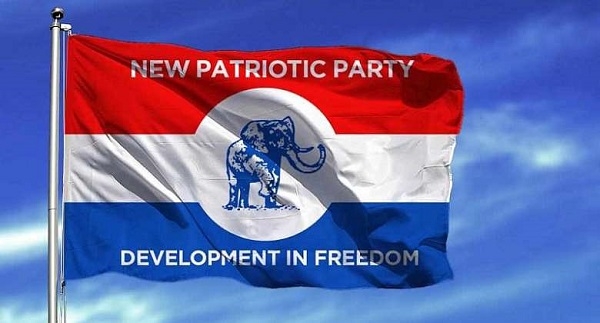 NPP will hold its presidential primaries on January 31, 2026
NPP will hold its presidential primaries on January 31, 2026
In any functioning democracy, internal party structures serve as the foundation for national democratic health. It is for this reason that political parties like the New Patriotic Party (NPP), which has long demonstrated to uphold rule of law and democratic integrity, must be held accountable when internal practices begin to tilt towards constitutional abuse.
A worrying development now looms: the potential for a single cohort of elected party executives (Polling Stations, Electoral Areas, Constituencies, Regionals, and National) to vote in two presidential primaries within one term of office.
This is not only politically unethical; it is constitutionally unsound and morally indefensible.
The Constitutional Framework of the NPP
The NPP Constitution (as amended in 2009) is clear on the tenure of elected party executives and the procedures for electing a presidential candidate. According to Article 9(4) of the Party Constitution:
All officers elected under this Constitution shall hold office for a period of four (4) years and shall be eligible for re-election.
This provision defines a clear term limit. The idea that these same executives would be empowered to vote in two different presidential primaries within a four-year tenure directly undermines the principle of periodic leadership renewal and the legitimacy of internal democratic processes.
Further, Article 13(1) governs the election of the party’s presidential candidate when in opposition:
When the Party is in opposition, the Flagbearer (Presidential Candidate) shall be elected at least twenty-four (24) months before the next national general elections.
This requirement implies that internal elections for executives must be scheduled in a way that allows a fresh mandate of grassroots and intermediary officers to participate in selecting the flagbearer.
If the same set of polling station executives or electoral area coordinators who voted in the Saturday, November 4, 2023 presidential primary are again positioned to vote in another before 2028, this would amount to a violation of both the letter and spirit of the NPP’s internal laws.
A Subversion of Internal Accountability
Allowing an overlap in executive mandate for multiple presidential primaries dangerously concentrates decision-making power in the hands of a few, undermining the very purpose of periodic elections. This sets a dangerous precedent of manipulation, particularly in situations where incumbents may strategically delay or suppress internal elections to preserve a favourable voter base.
Such conduct would not only erode confidence in the NPP’s internal democracy but would also conflict with the democratic ethos enshrined in the 1992 Constitution of Ghana.
National Constitutional Standards
Article 55(5) of the 1992 Constitution of Ghana states:
“The internal organization of a political party shall conform to democratic principles and its actions and purposes shall not contravene or be inconsistent with this Constitution.”
This provision reinforces the requirement for internal democratic accountability and periodic leadership renewal. A deliberate effort by any group within the NPP to create an artificial overlap; allowing executives to unduly influence multiple flagbearer selections; would breach this constitutional obligation and may even warrant legal scrutiny under electoral law.
The Way Forward: A Call for Institutional Integrity
As a party that has contributed significantly to Ghana’s democratic journey, the NPP must avoid descending into constitutional hypocrisy. Upholding the integrity of internal elections is not optional; it is the duty of any serious political tradition seeking to govern a pluralistic republic.
Party stakeholders, particularly the National Executive Committee (NEC) and Council of Elders, must resist the temptation to bend rules for political convenience. In the face of mounting political tension and a citizenry increasingly disillusioned by elite manipulation, the NPP must rise above partisanship and honour its own constitution.
Conclusion
As an Executive Master’s student in Conflict, Peace, and Security at the Kofi Annan International Peacekeeping Training Centre (KAIPTC), and a holder of a Master of Science degree in Disaster Management from the University of Cape Coast, I am trained to recognize the early signs of institutional breakdown and political manipulation that often precede conflict and democratic decline. What may seem like a minor infraction; allowing one set of party executives to vote in two separate presidential primaries; is in fact a dangerous precedent that undermines trust in political institutions, breeds factionalism, and weakens the legitimacy of electoral outcomes.
The NPP, like all major political parties in Ghana, bears a national responsibility that transcends its internal interests. Its constitution is not merely a procedural guide; it is a covenant with its members and a reflection of Ghana’s broader democratic culture. Any breach of this covenant must be firmly resisted to avoid conflict.
If the NPP seeks to lead Ghana into the future, it must begin by respecting the rules it has set for itself. Anything less risks plunging both party and country into a crisis of confidence that no democratic system can afford.
You can also watch the latest Twi news on GhanaWeb TV below:


